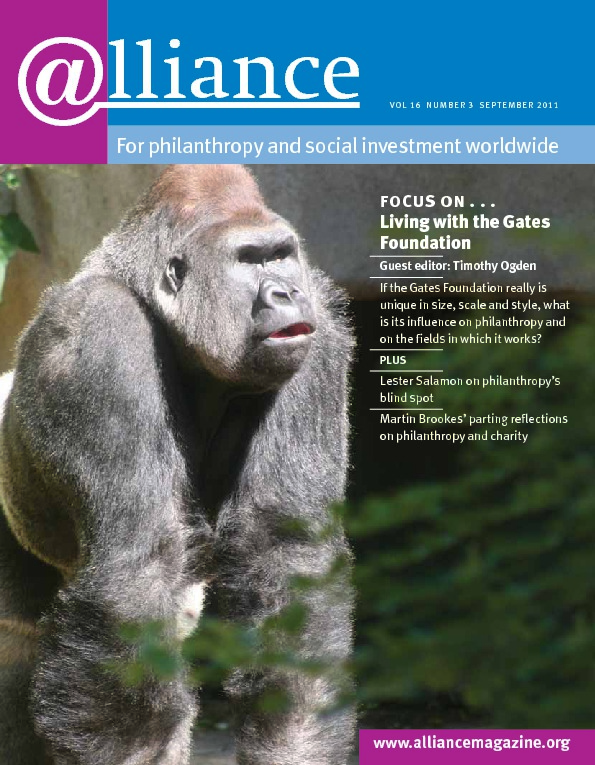We recently read with great interest your March edition, which focused on the question ‘When does collaboration make sense?’ In response we would like to draw your attention to an example of a different model of collaboration in the form of the Funders Collaborative for Children: Malawi (FCFC).
The FCFC consists of four UK-based international donors: the Diana Princess of Wales Memorial Fund, Comic Relief, the Elton John AIDS Foundation and the Children’s Investment Fund Foundation. The collaborative is a pooled funding and joint venture model, with each member organization committing an equal amount over five years to fund an innovative programme locally know as Mkuta Mwana (Surround the Child) in the district of Salima, Malawi. The programme is a holistic approach to providing vulnerable children affected by HIV/AIDS with a continuum of care across four domains: health, education, social welfare and livelihood.
A key problem we identified is the fragmentation of effort between government departments, between civil society organizations and between funders. We believe that if we can find ways of creating greater cohesion between these players, the impact on vulnerable children could be profound. We hope that key features of our approach could be used elsewhere in Malawi and Africa and that we can also demonstrate the advantage of funders working together.
We believe that working in collaboration with other funders gives us three main advantages over working on our own: more money than we would have been able to pull in on our own, and therefore the ability to work at significant scale and pay for high-quality monitoring, evaluation and programme staff; more expertise in terms of sector knowledge (palliative care, education, livelihood, etc) and grantmaking approaches; and more influence with key players in the Malawian government and with other funders and stakeholders.
The underlying assumption behind FCFC is that collaboration between donors can achieve greater impact, on the principle that ‘the whole is greater than the sum of its parts’ – though we also recognize the flip side of this: that a group’s work may be reduced to the lowest common denominator. We also recognize that each partner in the FCFC has its own vision, mission and ways of working which affect its approach to grantmaking. Different organizational styles may lead to creative progress or to clashes leading to a lack of clarity in our common approach.
The FCFC has commissioned an internal evaluation to analyse where we succeeded, where we failed, and what the pitfalls might be. Through sharing this learning the FCFC hopes to help funders make more informed choices about when collaboration can increase their effectiveness. The report will be published in 2012.
Henry Walton
FCFC Administrator





Comments (0)